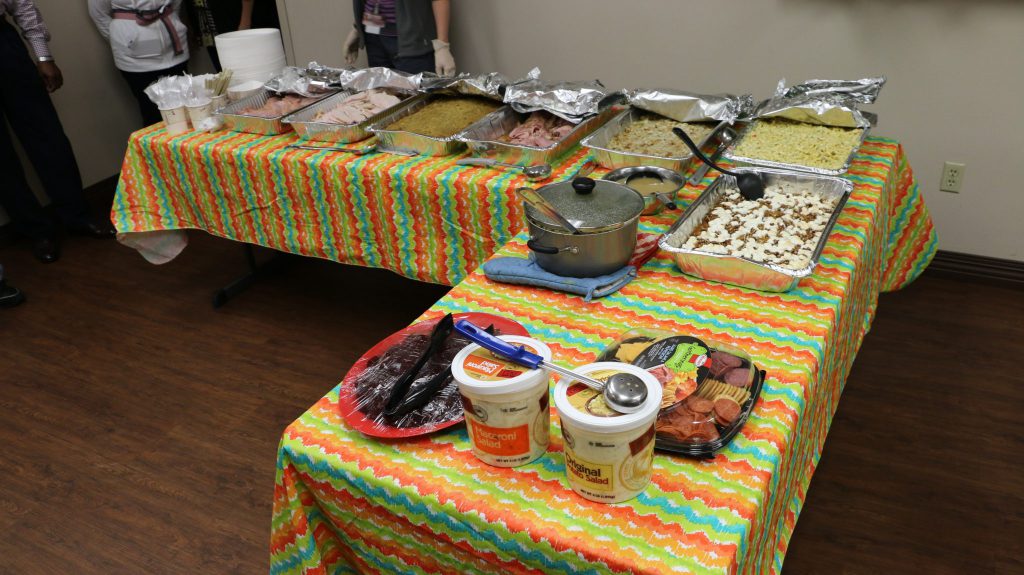People come to rehabilitation to recover their independence. One key ingredient is regaining cooking skills.
To make treatment as functional and relevant to each patient’s life as possible, we create therapeutic activities. These combine therapy with fun activities.
Every year, the Independent Living Skills team has an annual Thanksgiving lunch to allow patients to work on increasing independence while participating in a holiday tradition that’s important to them. It’s great practice in cooking skills.
Patients plan and prepare the entire meal with assistance when needed from staff. There are many steps that go into preparing a meal that most people perform easily and automatically. After a brain injury, these tasks are often much more difficult. The meal preparation process is broken down into as many steps as needed for each individual. Each patient’s activity is agreed upon according to the individual’s goals. Patients can select items to prepare from traditional Thanksgiving menu items or contribute their own special recipes (this year we had “The Best Darn Enchiladas in the World” in addition to turkey).
We start with researching recipes on the internet or in a cookbook, giving support to the patients when they need it. The patients are then guided to determine needed ingredients and equipment. Math and problem-solving skills are used to determine the amount of ingredients needed to feed a large number of people.
Pate’s treatment kitchen then needs to be inventoried to see if any items are already in stock to prevent purchasing duplicate items and spending money unnecessarily. This may sound simple, but visual deficits are common after a brain injury. For some patients, this can be a rather challenging activity.
Once the list is finalized, therapists take patients grocery shopping. Some patients may have a goal to locate items, which requires a higher level of visual scanning. Others may have a goal to speak to a store clerk to work on communication skills. Keeping track of the cost of the items as they are selected works on money-management and memory.
Preparing the meal can include very basic tasks like stirring or as challenging as using a sharp knife to cut, taking hot food out of the oven, or remembering to turn off the stove. Finally, enjoying the meal allows everyone to have a reward for the hard work. During the meal, we practice social skills while enjoying the company of others.
Patients also help with cleaning after the meal. Pate addresses real-life situations, even the less pleasant ones. The patients work hard to complete this activity. It is inspiring to see how the majority of patients appreciate life and maintain a positive attitude in such a challenging situation. It is a reminder to be thankful for the small things in life and celebrate every gain.
Elizabeth Raymond, OTR/L, CBIS

